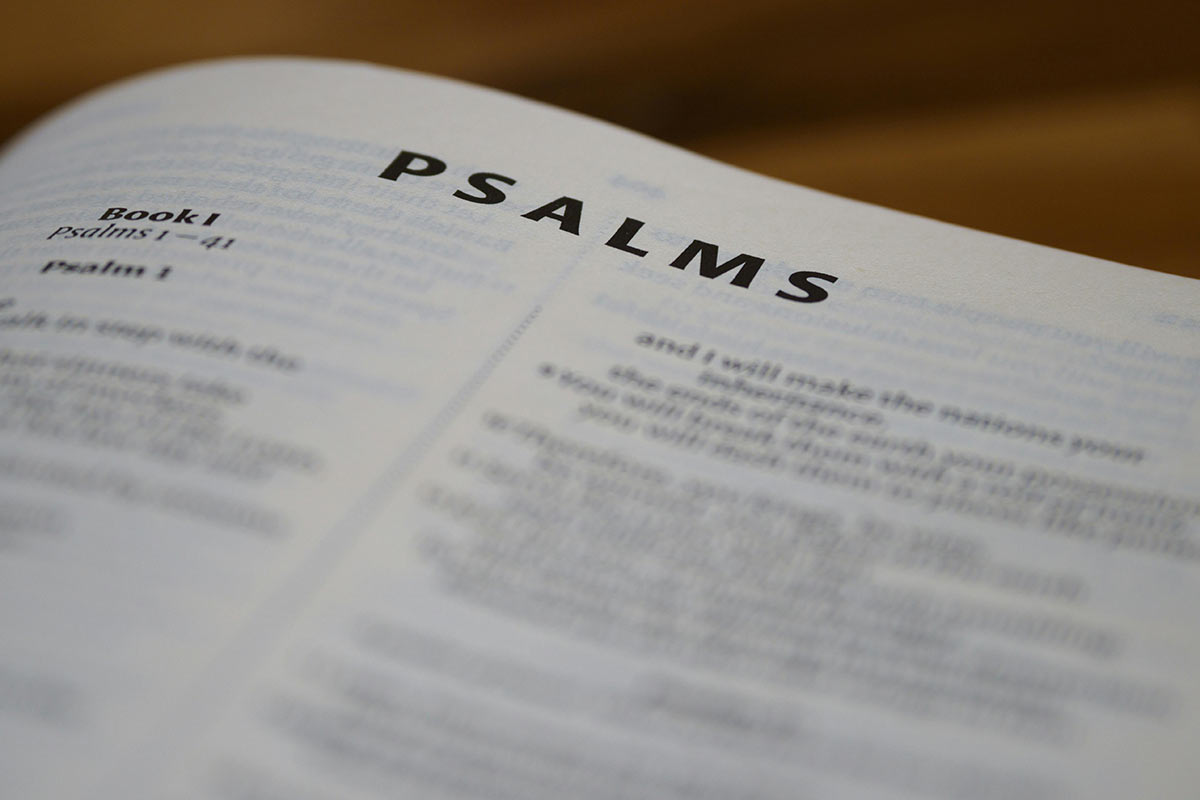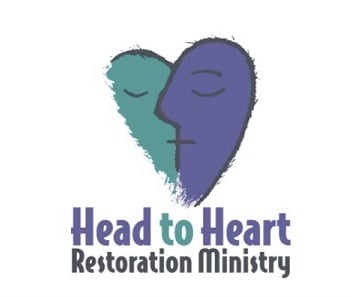Jane’s grief felt like an emotional roller coaster.

When someone close to you leaves this world, the grief can be overwhelming and so personal, it is difficult to believe anyone could truly understand the pain. For Christians, the loss can be deeply spiritual as well.
When Jane (not her real name) lost her husband of thirty years, she plunged into an emotional maelstrom of sorrow over her loss, and also confusion as to why God would allow such a thing to happen to such a good man.
Jane’s daily life had always been lived as a partnership, her husband being her best friend, supporter, and encourager, and he was suddenly gone. Her life was totally disrupted, and she struggled to return to her normal activities, keep parenting and now comforting her children, and running her household. She didn’t know what to do to stop the pain.

Jane’s grief felt like an emotional roller coaster.
When someone close to you leaves this world, the grief can be overwhelming and so personal, it is difficult to believe anyone could truly understand the pain. For Christians, the loss can be deeply spiritual as well.
When Jane (not her real name) lost her husband of thirty years, she plunged into an emotional maelstrom of sorrow over her loss, and also confusion as to why God would allow such a thing to happen to such a good man.
Jane’s daily life had always been lived as a partnership, her husband being her best friend, supporter, and encourager, and he was suddenly gone. Her life was totally disrupted, and she struggled to return to her normal activities, keep parenting and now comforting her children, and running her household. She didn’t know what to do to stop the pain.

Jane’s grief felt like an emotional roller coaster.
When someone close to you leaves this world, the grief can be overwhelming and so personal, it is difficult to believe anyone could truly understand the pain. For Christians, the loss can be deeply spiritual as well.
When Jane (not her real name) lost her husband of thirty years, she plunged into an emotional maelstrom of sorrow over her loss, and also confusion as to why God would allow such a thing to happen to such a good man.
Jane’s daily life had always been lived as a partnership, her husband being her best friend, supporter, and encourager, and he was suddenly gone. Her life was totally disrupted, and she struggled to return to her normal activities, keep parenting and now comforting her children, and running her household. She didn’t know what to do to stop the pain.
Jane’s Story
Jane’s husband David was a leader in their church, and both she and David were part of a number of ministries. His sudden heart attack didn’t just leave her and her children’s lives shattered, it also left a huge void in the church. Jane felt like she was moving around in a fog, unable to think straight. barely able to talk, and unable to stop crying. She kept thinking about the day he passed and what she could have done to stop it from happening.
While her church community was very caring, Jane knew that she needed help with processing her emotions because she didn’t want to face her grief alone.
She also knew that she couldn’t help her children process their own grief until she learned how to do that herself first.
Understanding Grief
Grief is a natural emotional response to significant loss, and it can plunge us into a season of intense emotional pain that can feel overwhelming. This terrible sense of loss can show itself in various ways, including physical symptoms.
Grief reflected the emptiness Jane felt after losing the man she loved, making it feel like it had taken over her mind and body to where she noticed nothing else.
Types of Grief and Loss
There are different types of grief and loss, not just the loss of a loved one.
- Anticipatory grief develops before a significant loss occurs, for example, when a loved one is terminally ill or a person is about to retire or lose a job.
- Disenfranchised grief happens when a loss is not recognized and acknowledged, or it is made fun of, or it cannot be openly mourned, such as the loss of a pet or a friendship. [It’s important to recognize that grief is not limited to the loss of people; it can also follow the loss of pets, jobs, homes, or other emotionally significant things.]
- Complicated grief occurs after the death of a loved one, where the loss leaves you stuck in your grief for numerous reasons.
Understanding these different types of grief helped Jane identify her own experience of complicated grief and seek the right Christian therapy.



Symptoms of Grief and Loss
Symptoms of grief and loss can vary widely from person to person, but common emotional symptoms include:
- shock,
- sadness,
- guilt,
- fear, and
- anger.
Physical symptoms are also common and can include:
- changes in appetite,
- sleep disturbances, and
- chronic tiredness.
In some cases, grief can lead to more severe reactions such as:
- suicidal thoughts,
- self-neglect, and
- a weakened immune system.
These symptoms underscore the importance of seeking support. Whether it’s from a licensed therapist, a grief counselor, or a Christian counselor, professional help can provide the guidance and care needed to walk though these challenging emotions.
In Jane’s case, she felt guilty about not booking David’s yearly physical, she was very angry at him for not doing it, and she wasn’t eating properly.
Jane’s Counseling
In her counseling session, Jane knew she was in a safe place for expressing her pain, grief, and anger. Her counselor was compassionate and understanding, and she was able to guide Jane through the grieving process gently, leading her through both emotional and spiritual healing. Jane felt supported in a practical way as well because her counselor helped her look at her day-to-day life and prioritize what had to be done versus what she felt she “should” be doing.
One aspect of Jane’s counseling with Head to Heart Ministries that she appreciated tremendously was that she could do her sessions both in the Round Rock office and over video from her home in Austin. With her children’s schedules, it made a huge difference to her ability to keep taking care of her emotional health.



The Grieving Process
The grieving process is never the same for each individual, and it has no predictability to it. Many people do not progress through the five stages of grief—denial, anger, bargaining, depression, and acceptance—in that order. For Jane, these stages felt like a turtle race in which no turtle knew where the finish line was, and they all kept changing lanes and speeding up or slowing down.
Her grief felt like an emotional roller coaster. Symptoms of grief can mirror those of depression, including profound sadness. The ride tends to be rougher in the beginning, but over time, the emotional waves should lessen in strength and time. Understanding this helped Jane be more patient and compassionate with herself as she processed her grief. Acknowledging and validating her feelings in a safe setting helped.
Comfort in God’s Word
The Bible is full of so many verses that give us comfort and guidance when we’re grieving, like Matthew 5:4, “Blessed are those who mourn, for they will be comforted.” While Jane knew that God saw her pain and that he was with her, it helped her tremendously to be reminded of that and to read that Bible verse whenever she needed comfort and peace. She wrote out and kept some verses by her bed that she felt were very personal to her.
Psalm 34:18, “The Lord is near to the brokenhearted and saves the crushed in spirit.”
Revelation 21:4, “He will wipe away every tear from their eyes, and death shall be no more, neither shall there be mourning, nor crying, nor pain anymore, for the former things have passed away.”
Psalm 147:3, “He heals the brokenhearted and binds up their wounds.”
Guidance through Prayer
Jane was grieving deeply, and her counselor encouraged her to tell God exactly how she was feeling in prayer. Jane was also encouraged to talk about the past and the future with the Lord in an honest way. The more Jane talked with God, the more connected she felt to him, until she started to feel small amounts of hope shine in the middle of her despair. With God listening and responding to her pain, she began to feel stronger emotionally and physically, and more ready to face each day.



Finding Support for Grief and Loss
Finding support for grief and loss is crucial for healing and growth. You can turn to friends and family members, join a support group, or talk to a Christian therapist or grief counselor. Christian counseling offers a safe and supportive environment to process your emotions in line with your faith.
Grief is a unique experience, and there’s no right or wrong way to grieve.
With the right support, you can steer through the grieving process and find healthy ways to cope with your emotions. Whether through prayer, community support, or professional Christian counseling, you can find the strength to move forward and honor your loss in meaningful ways.
Jane’s church community supported her and her children well, praying with her, cooking meals for her and the children, cleaning her house, inviting her over for coffee during a school day, and meeting other practical needs that her husband would have done in the past.
Jane had believed that she shouldn’t ask anyone for help, but through counselling, she began to see that letting other people help could become a blessing to those offering it. It also helped Jane feel like she was a valid and appreciated part of her church family even without her husband.
Professional Christian Counseling
Christian counseling provided Jane with professional support that was deeply rooted in her faith. Jane was counseled based on her individual traits — her very unique way of looking at life — and then matching that with God’s promises and truth. Her need for God’s comfort was huge, and through counseling, she was able to receive all the comfort God had for her.
Through counseling, Jane learned to honor her grief while also moving forward.
She began to find joy in small things again, to laugh, and to remember David with more smiles than tears. Her faith grew stronger, and she felt a renewed sense of purpose.
You Are Not Alone



Grief is a challenging and painful journey, but you do not have to walk it alone. Christian counseling offers comfort, guidance, support, and faith-filled wisdom that can help you find peace in your sorrow. If you are grieving, consider reaching out to a Christian counselor who can walk alongside you and give faith-based support and professional care.
Just as Jane found hope and healing, so can you. Take the first step toward finding peace. Book your introductory in-office or video session with one of Head to Heart’s pastoral counselors. You are not alone, and help is one email or phone call away.
